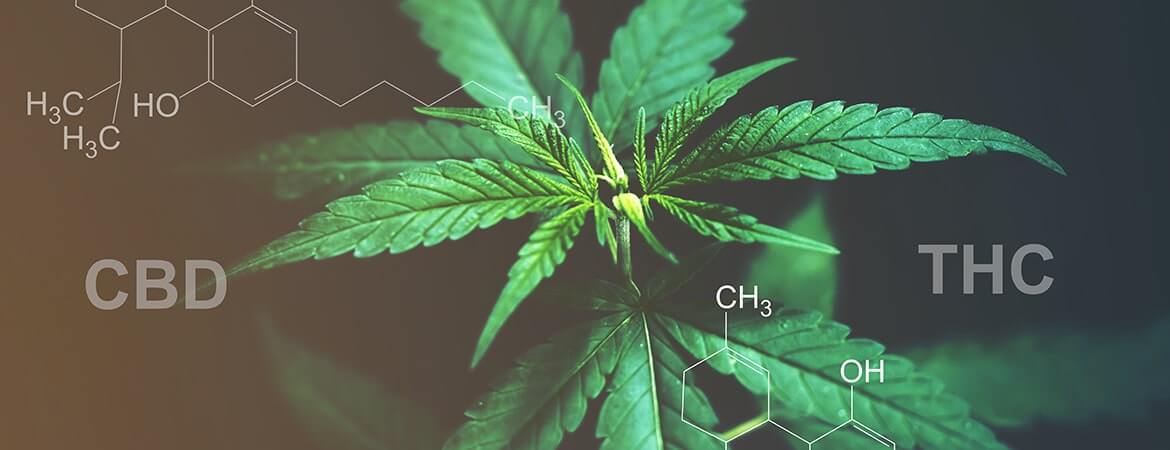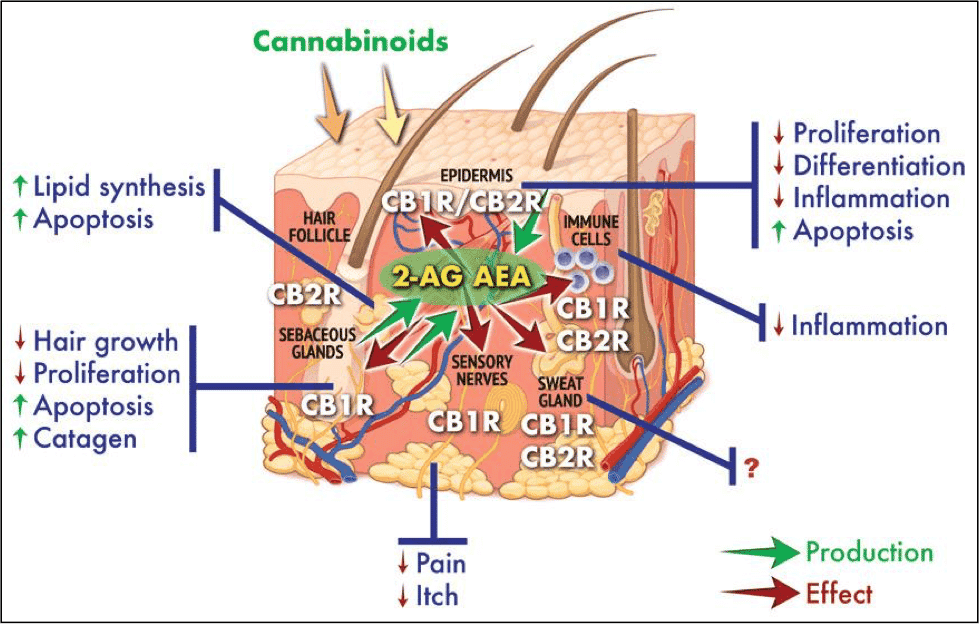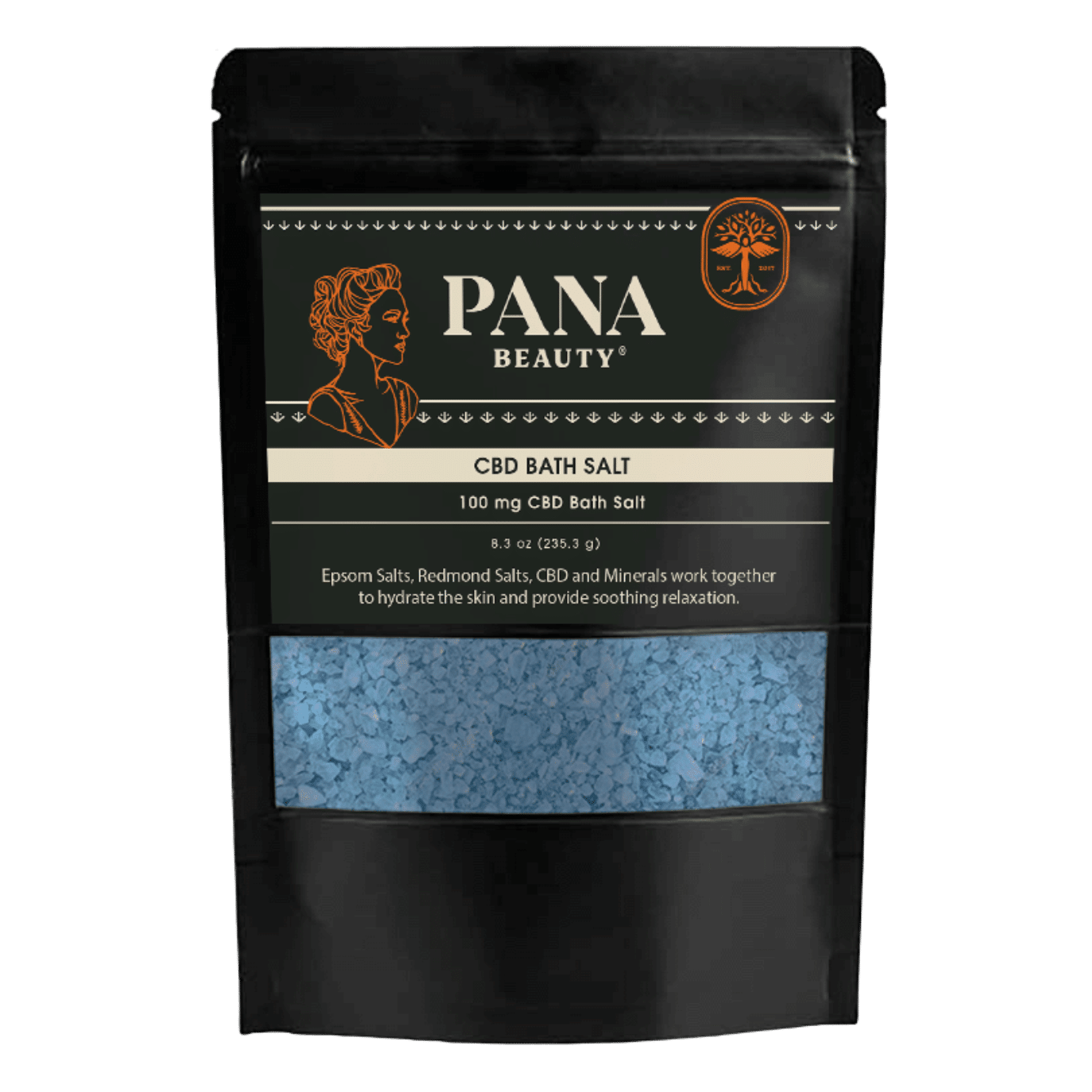The human body is significantly more nuanced and complex than most people think. Many discoveries amaze even the most prolific of scientists. One recurring theme in many of these discoveries is that there are systems and interactions within the human body that are highly specialized yet play a critical role in our well-being. For example, there might be a receptor that responds only to a specific molecule, but that molecule might be the difference between feeling well and having poor health.
In 1988, researchers expounded more on the endocannabinoid system, and it is the perfect example of a highly valuable set of interactions that had previously gone undetected because it was so nuanced. While research is still emerging, there is evidence that endocannabinoids are involved in everything from inflammation to anxiety to sleep. There is even evidence to suggest that endocannabinoids are involved in brain and heart health. The best part is that CBD, which is a cannabinoid, works with this system and helps unlock its full potential.
To understand this system better and see how it can help you, we need to first look at how the system functions.
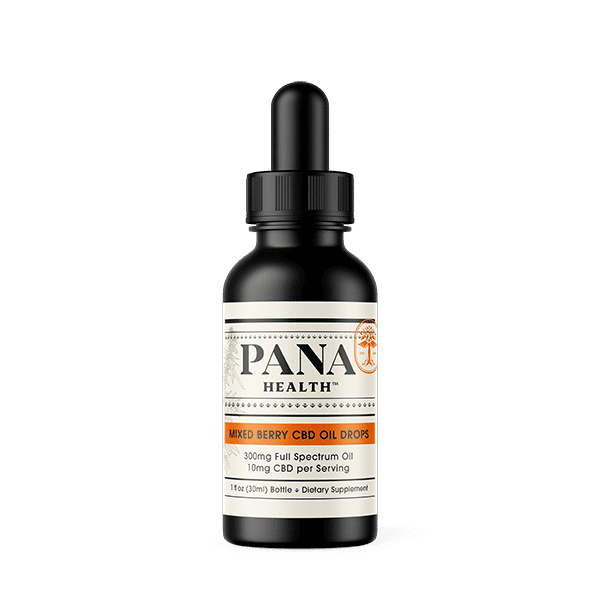
Endocannabinoids: A Critical Component of Natural Health
The prefix “endo” is a Greek term that means “within.” An endocannabinoid system, therefore, is a set of biochemicals that our body generates and receptors that function when the biochemicals bind.
Many of the body’s processes work on the principle of receptors and chemicals that bind to those receptors, eliciting some response. A perfect example of this is serotonin in the brain. Serotonin binds to receptors in the brain to create feelings of happiness. Having too little serotonin can induce feelings of anxiety and depression. Serotonin does more for your body than merely regulate mood, but within the brain, some receptors look for this chemical and bind to it.
The endocannabinoid system is similar. There are cannabinoids that the body produces naturally, and there are receptors throughout our body that detect for them. When these endocannabinoids bind with these receptors, it signals to our bodies to do a specific action. Remarkably, these receptors bind not just with the cannabinoids that our body produces, but also with cannabinoids found in the cannabis plant. The two major cannabinoids, THC and CBD, both bind with these receptors, but in very different ways.

-
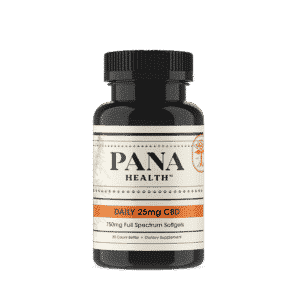
DAILY Full Spectrum CBD Softgels
From: $23.95 Select options This product has multiple variants. The options may be chosen on the product page -
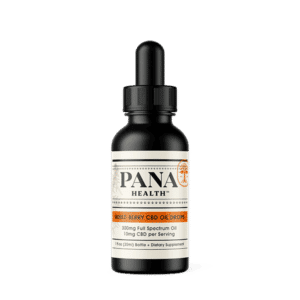
CBD Oil Drops (Full Spectrum)
From: $17.45 Select options This product has multiple variants. The options may be chosen on the product page -

THC-Free CBD Gummies TO-GO Pack
$6.95 Add to cart
There are two types of cannabinoid receptors. Many scientific papers abbreviate them as CB-1 and CB-2.
CB-1 receptors are in the brain primarily, though they are also in reproductive systems and the cerebellum. These receptors are involved in many functions. In particular, they are partly responsible for “movement, sensory learning, analgesia, anxiety, and appetitive behaviors.” Within the body, the primary cannabinoids that bind with this receptor are anandamide and 2-Arachidonoylglycerol (2-AG). The brain contains these natural compounds, and they play essential roles in regulating the behaviors listed.
Your immune system and peripheral nervous system contain CB-2 receptors. The brain and your gastrointestinal system also contain these receptors. Like, CB-1, CB-2 also plays a critical role within the human body. Most notably, CB-2 regulates inflammation. Binding with these receptors can moderate the behavior of our immune system, particularly when it becomes overly active. There is also evidence that these receptors have neuroprotective properties. In our bodies, the main endocannabinoid that binds with this receptor is 2-AG, which also interacts with CB-1.
Both receptors, and the chemical compounds that couple with them, work to achieve homeostasis within our bodies. They keep our bodily processes, like eating and immune response to infection, relatively stable so our bodies can function in good health. Indeed, without the endocannabinoid system, we might not even be able to work correctly! That is likely one of the biggest reasons why most mammals have this system.
THC And CBD: Cannabinoids That Also Bind
As cannabinoids, both THC and CBD also bind to CB-1 and CB-2 receptors, but the way they do so is very different.
THC binds to CB-1 receptors primarily and partially binds to CB-2. Recall that CB-1 is responsible for things like movement and appetitive behaviors. When someone smokes Marijuana, they ingest THC. Our bodies absorb that compound, which makes its way to the CB-1 receptors. When it binds with them, it creates the familiar “high” sensation about which Marijuana users are very familiar. The fact that the CB-1 receptor also regulates appetite explains the infamous “munchies” that Marijuana smokers get.
On the other hand, CBD binds to CB-2 receptors but doesn’t attach well to CB-1 ones. That explains why CBD is a well-known immunosuppressant. Under normal circumstances, immune cells release cannabinoids to signal other cells, but also let our bodies know that the fighting of the infection is underway. The cannabinoids make their way to the CB-2 receptors, and our body knows cells are “on-site and working,” so to speak.
In some respects, you might think of the CB-2 receptors in immune cells as phoning methods. When there is a fire, someone calls in the emergency. When crews arrive, they also radio in to say that they are there fighting the blaze. Your immune system works similarly. When your body detects an unknown pathogen, it needs to send cells to the site to destroy it. But you don’t want the system to become over-active and destroy everything. Instead, the immune system partly uses the CB-2 receptor to say, “Hey, we’re here at the scene of infection and are fighting it,” so that way your body doesn’t need to dispatch too many immune cells.
By taking CBD, we activate these receptors, which, in turn, moderates our immune system. For people with healthy immune system responses, this won’t do much. However, for people with overactive immune systems, CBD has the potential to have a significant impact. With diseases of the immune system, such as rheumatoid arthritis, the immune system attacks healthy tissue. These attacks cause the joint to become inflamed and result in pain, swelling, and a whole slew of undesirable complications.
CBD is a natural way to suppress an overactive immune system and help it not attack healthy tissue. In turn, the inflammation won’t happen, and the muscle or connective tissue can remain healthy. In rheumatoid arthritis, for example, the immune system continuously destroys the connective tissue, which causes extreme pain and difficulty moving the joint. CBD may help keep the inflammation away and let the joint heal and function like it did before arthritis.
The fact that CBD does not bind well to CB-1 receptors also explains why people do not have a “high” sensation from CBD but do feel some level of happiness and anxiety relief. It’s not that CBD does not bind at all to CB-1 receptors; it just does so significantly less than THC. It attaches to these receptors at such a low level that CBD is not psychoactive, and people retain full cognition and mental state after taking CBD.
Intriguingly, CBD can also help to mitigate the effects of THC. When administered together, CBD will bind primarily to CB-2 and a little to the CB-1 receptors. In small doses, CBD may have an “inverse agonist” effect on CB-1 receptors. This term means that it binds to the CB-1 receptor but has the opposite effect of an agonist like THC. Therefore, if CBD binds first, it has the effect of blocking the THC, thereby lessening some of the results that THC can have on people’s mental states. Marijuana contains both CBD and THC, so the “high” that people feel while consuming it is reduced in part due to the presence of CBD.
How Does CBD Promote Natural Health?
Part of the success of CBD is that it works with our endocannabinoid system in a complementary way. It is a substance that is natural and that our bodies expect to have in it. We even have receptors that work with these cannabinoids. This natural extract, of course, stands in stark contrast with manufactured medicines which are synthetically produced and oftentimes have undesired side effects. While you should never stop taking your prescribed medication, it also doesn’t hurt to look at all-natural solutions about which you can talk with your doctor.
There are a few ways in which CBD promotes natural health. The first way, of course, is by reducing inflammation. As described earlier, CBD’s ability to bind with the CB-2 receptor has an immunosuppressive effect. If you have an autoimmune disease, CBD may help you. This includes everything from rheumatoid arthritis to lupus to psoriasis to multiple sclerosis. Of course, you should discuss taking CBD with your doctor for any of these conditions, but there is emerging research that suggests it may be beneficial.
The other way CBD promotes an improved quality of life is through a reduction in anxiety and stress. Recall that CBD has a mild “inverse agonist” effect on CB-1 receptors. The THC compound, which is an agonist, tends to induce anxiety when smoking Marijuana. Counterbalancing that anxiety is CBD, which, when binding to the CB-1 receptors, has an inverse effect.
Of course, if you take CBD and have no other compounds that aggressively bind with the CB-1 receptor, then the CBD will unite with some of them as well and make you feel more relaxed. This reason is why many CBD users report less anxiety and less stress.
That relaxed feeling that CBD users experience has other positive benefits. Feeling less stressed can result in lower blood pressure and has various cardiovascular benefits. Since CBD may have the ability to reduce anxiety and depression, it can help protect against these things. There is also some research to suggest that CBD oil, much like fish oil, is an antioxidant. In effect, this property means that it helps protect your cells from damage. Research has consistently shown that this property helps fish oil protect your heart. CBD oil may have similar features when it comes to your heart.
There is also some evidence to suggest that CBD may have neuroprotective properties. The reason why it may help boost brain health is, again, due to these receptors. In the brain, CB-2 receptors tend to have presynaptic-inhibition. There is some evidence to suggest that this type of inhibition has neuroprotective qualities. Since CBD is good at binding to these endocannabinoid receptors, it then follows that it would help protect and promote brain health.
CBD And the Endocannabinoid System: A Perfect Match
Many CBD and Marijuana users are surprised when they learn that our bodies have specialized systems that work with the compounds in cannabis. We likely didn’t evolve these specialized systems because there is a plant. Instead, it just happens that this plant contains compounds that our systems can use in a meaningful and beneficial way.
The endocannabinoid system has two primary receptors, CB-1 and CB-2. Under normal circumstances, there are two compounds within our bodies that bind to these receptors. These substances are anandamide and 2-Arachidonoylglycerol. 2-AG, the latter compound, also links with CB-2. When your body is functioning normally, these two cannabinoids are produced internally and trigger the appropriate responses.
However, when you ingest CBD or THC, these compounds interfere with these systems. THC binds with CB-1 to make you feel anxious, hungry, and give you a “high” sensation. Conversely, CBD binds with CB-2 to help reduce inflammation, anxiety, depression, and potentially help with a whole slew of health issues. While both compounds serve their purpose, CBD is more health-oriented, whereas THC is more pleasure-oriented.
It’s worth noting that CBD research is still in its infancy. Remember that researchers only found this entire system within our bodies in 1992. That date makes the investigations less than 30 years old. Also, researchers into the benefits of CBD have had to jump through hoops due to CBD’s unfortunate association with Marijuana. As such, the bulk of the research has only occurred within the past decade or so.
Regardless, the studies on the effects of CBD are promising and quite exciting. Usually, researchers find that CBD benefits users through less pain, less anxiety, and better overall health. If you are interested in seeing what CBD can do for you, try some today!

